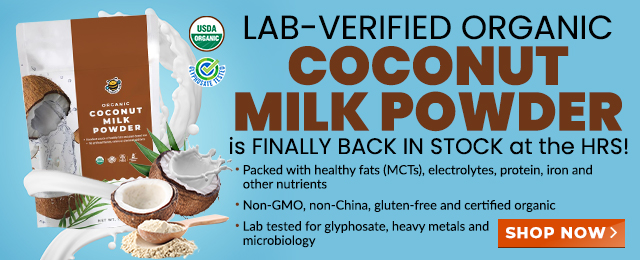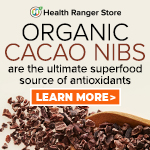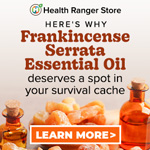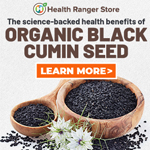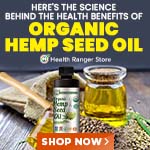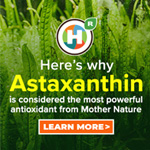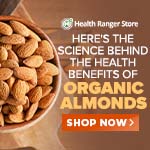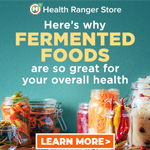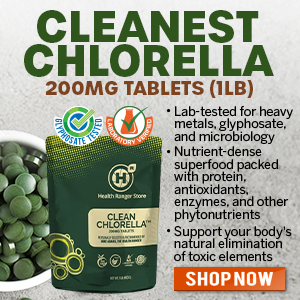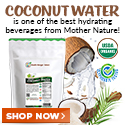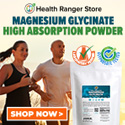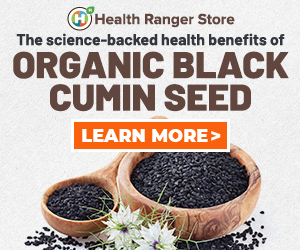
Daniel Vitalis Part III: Taste Our Medicines
Wednesday, October 07, 2009 by: Kevin Gianni
Tags: Daniel Vitalis, health news, Natural News
- European Court of Justice: Healthcare professionals who promoted or administered COVID-19 vaccines are CRIMINALLY LIABLE for any harm caused
- Oncologist warns of ‘terrifyingly aggressive’ cancers in children, linked to immune suppression from COVID vaccines
- Newly released JFK files reveal Pentagon's role in creating Lyme disease and covid in the same lab
- Ancient kitchen secrets REVEALED: How garlic, ginger and green onions fight cancer and heart disease
- Britain’s descent into police state censorship: Parents raided for questioning their daughter’s school system online
- COVID-19 scandal linked to CANCER SURGE: Billionaire researcher sounds alarm
- NIH study, buried for decades, reveals that Flu Shots INCREASE elderly deaths, not prevent them
- DARPA: The shadowy innovator behind the world’s most advanced military technologies
- Decentralize TV: Dr. Leonard Coldwell reveals shocking, heavily censored truths about CANCER, healing and the medical mafia complex
- “Old Man in a Chair”: The COVID-19 pandemic was a carefully orchestrated scheme for global control
- Musk targets “strangely wealthy” lawmakers in DOGE probe, names Pelosi, McConnell, Schumer
- RFK Jr. is reforming Americans’ health: A shift in power and paradigm
- Cinnamon plays a critical role in diabetes management
- FRAUD ALERT: Details DEMOCRATS do NOT want you to know about the $40 BILLION wasted on Fed-loaded credit cards cancelled by DOGE
- Utah governor allows ban on LGBT pride flags in public buildings and schools, will take effect without his signature
- Scientists unveil breakthrough method to eliminate "Forever Chemicals" from water, transforming waste into graphene
- RFK Jr. is pushing Big Pharma ad ban - and corporate media is panicking
- Pam Bondi promises ‘NO PLEA DEALS’ in Tesla vandalism cases - MAXIMUM PRISON TIME to be served for Dems and Libs’ freakshow violence against the Right
- Newly released JFK files reveal Pentagon's role in creating Lyme disease and covid in the same lab
- CDC finally halts $11 billion COVID funding scam as health officials admit the ‘pandemic’ was a fraud
- Analysis: The coming economic collapse, a mass uprising and Trump's three secret weapons to halt the growing revolt
- Kiss Your Genetic Privacy Good-Bye! 23andMe Gets Green Light to Sell Your Intimate Genetic Details to Anyone They Want
- Dr. Suzanne Humphries makes bombshell appearance on Joe Rogan podcast, exposing vaccine industry deception back to POLIOMYELITIS
- DEADLY DECEPTION: How COVID vaccines increased mortality rates and why authorities hid the truth
- Woman contracts WORLD'S DEADLIEST VIRUS after unknowingly being given the WRONG VACCINE
- Oncologist warns of ‘terrifyingly aggressive’ cancers in children, linked to immune suppression from COVID vaccines
- Here are TEN all-natural ways to protect your garden without using harmful chemicals
- Black cumin seed oil emerges as a powerful ally against breast cancer and chronic inflammation
- The hidden dangers in your kitchen: How cooking methods impact diabetes, cancer and aging
- Trump's greatest betrayal so far: Accelerating Middle East wars, silencing dissent, and serving Zionist masters
- Senate Democrats deny censorship industrial complex existed, defend government's role in silencing dissent
- Sugar-free deception: Artificial sweeteners hijack hunger signals, fuel obesity epidemic, study warns
- “Independent” anti-Russia outlet MEDUZA faces COLLAPSE as US funding dries up
- NIH study, buried for decades, reveals that Flu Shots INCREASE elderly deaths, not prevent them
- The Health Ranger releases “Vaccine Zombie” song and music video, using AI-animated zombies for the music video
- Discovery of vast underground city beneath Giza pyramids challenges human history
- Newly released JFK files reveal Pentagon's role in creating Lyme disease and covid in the same lab
- California's social media censorship law struck down: A victory for free speech or a threat to online safety?
- EPA advisor admits the agency is funneling billions to climate groups ahead of Trump’s return to White House
- The Health Ranger releases “Vaccine Zombie” song and music video, using AI-animated zombies for the music video
- Dr. Mike Yeadon releases 15-minute testimony - WATCH - about genocidal intent of COVID “vaccines”
- Florida takes a stand: DeSantis proposes permanent ban on mRNA vaccine mandates
- Mike Adams releases country western hit single: Goin’ Back in Time is Comin’ Home
- “Why we influenced the 2020 elections”: Facebook files reveal the coordinated effort to bury the Hunter Biden laptop story
- Unpacking the Lies That We’ve Been Fed – new song and music video released by Mike Adams, the Health Ranger
- House Intelligence Committee calls for the ARREST and PROSECUTION of Dr. Anthony Fauci
- The pandemic as a tool for INDOCTRINATION: Understanding “The Indoctrinated Brain” by Dr. Michael Nehls
- Rep. Nancy Mace introduces bill to ban biological males from female facilities on federal property
- Mike Adams releases music poetry sensation: A Child of God
- Sugarcane extract superior to cholesterol-lowering drugs?
- Survival 101: Effective EMF blocking techniques
- Michigan sheriff announces criminal investigation into 2020 election crimes, Dominion Voting Systems
- Peter Rost exposes Big Pharma corruption in his book “The Whistleblower: Confessions of a Healthcare Hitman”
- Migrants are taking advantage of recent hurricanes to scam residents and loot their homes
- Red Cross issues warning to stop blood plasma donations from vaccinated people
- Scientists confirm: GENIUS brain function can be spontaneously unleashed in humans without any apparent cause
- EPA advisor admits the agency is funneling billions to climate groups ahead of Trump’s return to White House
- HYSSOP: What research reveals about the health benefits of this ancient holy herb
- Two containers with completed ballots fall out of truck in Florida
- Fully vaccinated about to see “tsunami” of illness and death, warns virologist
- Global leaders unite to clamp down on “misinformation” with UN-backed Cascais Declaration
- BREAKING: 2025 NDAA authorizes mandatory military draft of WOMEN across America… as Pentagon pursues global NUCLEAR war with both Russia and China at the same time
- Michael Yon warns of a ZIONIST TAKEOVER in Trump’s second administration
- BOMBSHELL: DNA testing kits are a SCAM to develop ethnic-specific bioweapons
- Ozempic and Wegovy weight loss drugs are injectable LIZARD VENOM PEPTIDES that may unleash a devastating wave of organ failure… side effects align with symptoms of SNAKE BITES
- Israeli soldiers accused of even more torture and abuse in the West Bank
- These 13 countries just signed an agreement to engineer a global FAMINE by destroying food supply
- NASA admits that climate change occurs because of changes in Earth’s solar orbit, and NOT because of SUVs and fossil fuels
- RFK Jr. clears key hurdle: Sen. Susan Collins backs controversial HHS nominee, signaling a new era for health policy
- Sermon 30: How Jesus reveals Caesar’s FAKE CURRENCY and FALSE AUTHORITY
- Coriander seeds: Ancient medicine backed by modern science
- Arizona officials claim Maricopa County needs 10-13 days to tabulate results of the election
Renegade Roundtable with Daniel Vitalis. Daniel Vitalis has built a wealth of knowledge experience around water and elixirs and has created the Elixir Craft Mastery Program.
Kevin: We`re talking a lot about elixirs and I`m sure that there are people on the call
that don`t even know what you put in an elixir. I`m not even sure what kind of things you put in your elixirs. So why don`t you kind of explain some of the things that you put in and then we`ll kind of explore some of the different questions that some people have specifically about different herbs and that thing.
Daniel: Great. Okay, the foundation of every elixir -- you know you`ve heard the saying, "We`ve built this from the ground up" -- elixirs are built from the water up. So what I do is I begin with the water that I gather. Sometimes I`ll shift that around slightly. For instance, in Maine over the next few weeks we`re going to start harvesting water birch trees and from maple trees, what gets turned into maple syrup or birch syrup. So sometimes you can pull liquids out of places like that. Sometimes you can pull liquids out of plants to make juices. But most often the foundation of my drinks is going to be the spring water that I gather.
The second step is that often I`m going to take that water and convert it into a tea. As an example, today my tea was dandelion root, dandelion leaf, nettle leaf, burdock root, yellow dock root with rose hips. I just happened to throw those things in. I like them together. That`s the medicine that I want right now. Again, it`s not a specific recipe I`m trying to get people on; it`s just what I happen to be using right now because those are the medicines I want right now. So it`s always changing. Whatever herbs you`re working with, you can make those into a tea. What we talk about is how to create teas, which are essentially water-based extractions.
So what I like to do is extract herbs or medicines into the water so now I have a tea. I can take that tea and add that into my blender... Throw that tea into the blender and that`s where you can start adding in your superfoods. When the superfood thing first started what happened was all of a sudden we had all these plant flours. They`re essentially flours, like in the way that you have flour from wheat, powdered flour. What we ended up with was chocolate flour, maca flour, mesquite flour, carob flour, all those powdered power foods. Well, what do you do with these things? Well I was like, just blend them into the tea. So I started blending those in. That`s like the third step, I`ll start blending in these different powders.
Then what we`ve got to think about is, "If I just drink tea with some powders in it I`m not going to be very satisfied. I need some calories." So what we`ve got to determine is, "Do I want my calories from protein, sugar or fat?" Those are the only places you`re going to be getting your calories from. So what you can do then is start to add in things... Like if you want to fuel yourself on fat you could add in coconut butter. If you want to fuel yourself on protein you can add in something like chlorella. If you want to fuel yourself on sugar you can add in honey. That`s where you can start to add calories in.
What I do is start with that water and I start building it up and adding in medicine. That sounds like something that would take a long time but once you understand the system it`s very quick. So I`m able to make meals in about five minutes that contain so much nutrition that I would say one of my drinks, on average, probably contains more ingredients and more nutrition than the average American eats over the course of a whole month. It`s about compounding medicine and nutrition. Hippocrates said, "Let
food be your medicine and let medicine be your food." What we`re doing is taking all that medicine and we`re turning it into food be it these elixirs and then drinking that.
The whole goal is it`s got to taste good. If it tastes bad you`re not doing it right. If it tastes bad there`s a subtle rejection from your body. In other words your body is not really into it. It`s kind of giving you the message, "Hey, I don`t like this." So it`s not really open to receiving it. The whole goal is getting the flavors in alignment with what your body is really asking you for. So what we`re talking about is something very much like the best smoothie you ever had except it`s got all the medicine of the great longevity foods and herbs.
Kevin: Now, is there a place for things that don`t taste good that your body is taking in, like very potent herbs and that sort of thing?
Daniel: That`s a great question. I`m surprised you asked that because here`s what I want to say. What doesn`t taste good? Is bitter a bad taste? We`ve got a mental program. Bitter can be a really bad taste if you`ve been raised on Mountain Dew and Ding Dongs. I was raised on those things and bitter tasted bad to me. Over time I`ve come to really appreciate the taste of things that are bitter or what we might say doesn`t taste good.
Kevin: Interesting.
Daniel: If there was something that doesn`t taste good it`s where flavors are inappropriately mixed. If they`re inappropriately mixed that doesn`t taste good. But I think most medicinal herbs a good taste. One of the things I like to do is instead of trying to hide taste, instead of trying to cover-up and mask taste, I like to try to bring out flavors. So if something is bitter I`d rather work with that than hide it. Here`s a little secret. This next statement could add a tremendous amount of value to your listeners' (readers') lives. It`s going to sound really simple but if you let this unfold and you meditate on this you`ll come to understand something that very few people get today. You know they don`t get it because you can look at how our herbal systems work. We encapsulate things. The Chinese told us that taste of a medicine was an integral part of its effect. In other words, if you take your herb and you put it in a little capsule and you swallow it and your body never even comes in contact with it and the substance of that capsule breaks open in your stomach and you bypass your taste buds, your body is not going to get the full effect of that medicine. So rather than try to hide your tastes, bring them out. If something is bitter a little bit of salt and a little bit of sweet can really bring out the beautiful part of that bitter, rather than trying to hide it or disguise it. I really like working with the flavors.
Kevin: Where do you find pure herbs?
Daniel: That`s another great question because we`re really running into a few issues in our culture right now. I won`t go into any of the negatives here but we`re all seeing some big changes happening here in this country right now that are economic in nature. What`s beautiful about that is it`s driving us to local economies. It`s driving us to working together. The paradigm of having food shipped in from all over the world, from diverse locations, to your door, is not going to last for that long. We`re going to have to start getting things locally.. The best stuff is going to come out of nature, wild where you live.
The next best stuff is going to come wild from somewhere else. The next best stuff is going to be cultivated by people and grown by people in a very intelligent way, locally.
The next best stuff is things that have been grown very intelligently and shipped to you. Where it starts to get really, really weird is where you start to access things that are grown poorly where you don`t know where they`re from. So what I would say is that you could access things locally like local gardeners, local herbalists. If you can go on walks in nature forests you can get the best stuff. Otherwise look for reputable companies that produce things that are organic or above and beyond organic. As you know, organic is becoming sort of meaningless. What we need to find is stuff that`s beyond organic, stuff that`s biodynamic ally grown or wild-crafted.
I get a lot of stuff from the same place you do, Kevin. A lot of great superfood, raw food people out there, they`re bringing the best stuff. I get a lot of stuff from them. And I gather a lot of my herbs more and more. That`s something I learned how to do over the course of years. That`s something that I know is going to be something I learn over the course of many, many more years, over the course of my lifetime. It`s not something you learn immediately.... Over time you can learn how to do this yourself right from nature. That`s where you`re going to get the best stuff.
For more from this excerpt of the Renegade Roundtable as well as access a full archive of information by health experts on abundance, optimum health, and longevity, please visit http://www.RenegadeRoundtable.com.
About the author
Kevin Gianni is a health advocate, author and speaker. He has helped thousands of people in over 85 countries learn how to take control of their health--and keep it. To view his popular internet TV Show "The Renegade Health Show" (and get a free gift!) with commentary on natural health issues, vegan and raw food diets, holistic nutrition and more click here.His book, "The Busy Person's Fitness Solution," is a step-by-step guide to optimum health for the time and energy-strapped. To find out more about abundance, optimum health and self motivation click here... or you're interested in the vegan and raw food diet and cutting edge holistic nutrition click here. For access to free interviews, downloads and a complete bodyweight exercise archive visit www.LiveAwesome.com.
Daniel Vitalis at FETCH.news
Get independent news alerts on natural cures, food lab tests, cannabis medicine, science, robotics, drones, privacy and more.
Take Action: Support Natural News by linking to this article from your website
Permalink to this article:
Embed article link: (copy HTML code below):
Reprinting this article:
Non-commercial use OK, cite NaturalNews.com with clickable link.
Follow Natural News on Facebook, Twitter, Google Plus, and Pinterest
Science News & Studies
Medicine News and Information
Food News & Studies
Health News & Studies
Herbs News & Information
Pollution News & Studies
Cancer News & Studies
Climate News & Studies
Survival News & Information
Gear News & Information
News covering technology, stocks, hackers, and more



"Big Tech and mainstream media are constantly trying to silence the independent voices that dare to bring you the truth about toxic food ingredients, dangerous medications and the failed, fraudulent science of the profit-driven medical establishment.
Email is one of the best ways to make sure you stay informed, without the censorship of the tech giants (Google, Apple, Facebook, Twitter, YouTube, etc.). Stay informed and you'll even likely learn information that may help save your own life."
–The Health Ranger, Mike Adams











